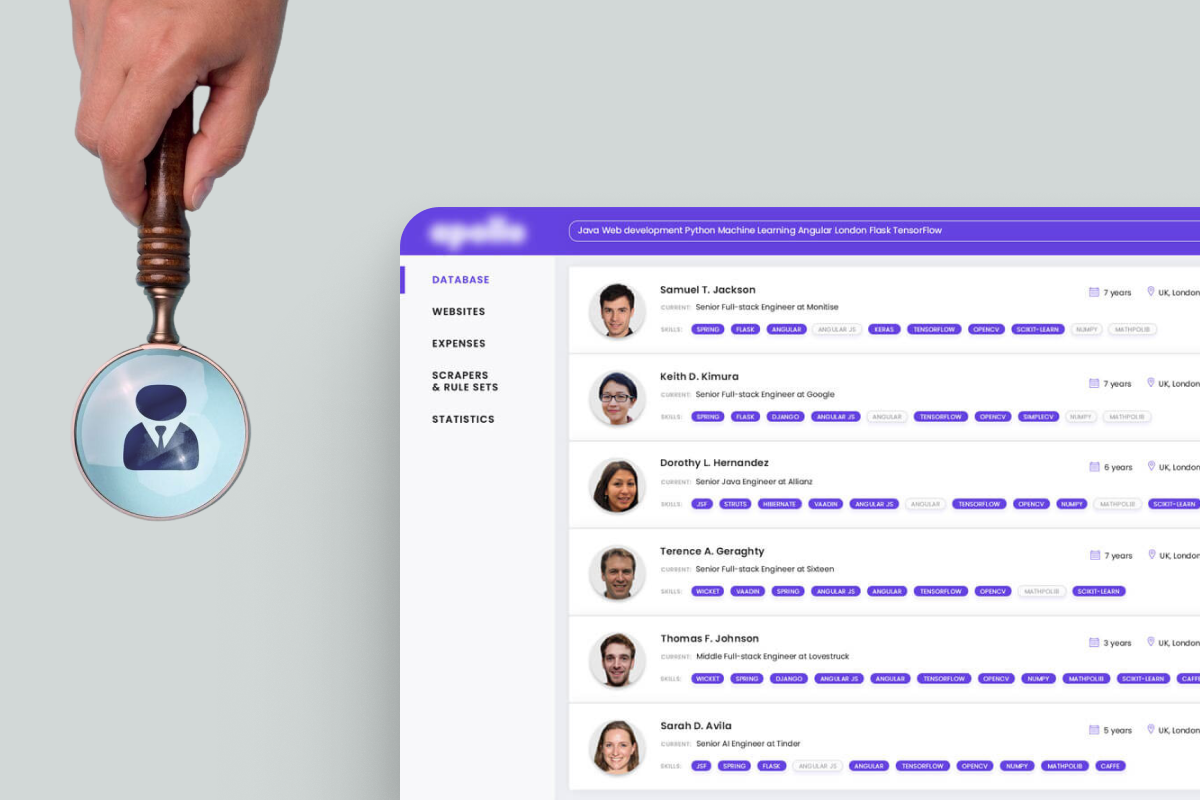All Technologies Used
Motivation
Recruiters were missing qualified candidates due to strict exact-match skill logic. The project aimed to allow the system to recognize similar and related skills, ensuring more relevant candidate results and reducing missed opportunities.
Main Challenges
The algorithm only considered perfectly matched skills, which excluded candidates who had similar skills. For example, a recruiter looking for 'C++' skills would not see candidates with 'C++ embedded' despite the strong similarity. Azati proposed implementing fuzzy matching to evaluate skill similarity and ensure such candidates would be included in the search results.
The algorithm didn't account for skill connections across different programming languages and frameworks. For instance, a candidate with 'Django' likely also knows 'Python', but the algorithm did not consider this. Azati’s solution was to incorporate skill relationships by analyzing dependencies between skills and utilizing external data sources like StackOverflow to determine the extent of such connections.
Our Approach
Want a similar solution?
Just tell us about your project and we'll get back to you with a free consultation.
Schedule a callSolution
Fuzzy Skill Matching
- Comparison of candidate skills with recruiter skills using fuzzy logic
- Partial match recognition for skill variations
- Reduction of false negatives in candidate search results
- Improved relevance scoring for candidates
Skill Dependency Recognition
- Conditional probability calculations between skills
- Recognition of implicit skill knowledge
- Improved candidate relevance for recruiters
- Supports complex skill hierarchies and dependencies
External Data Integration
- Data mapping from LinkedIn to StackOverflow
- Use of external tags for conditional probability estimation
- Improved skill matching accuracy
- Dynamic updating based on real-world skill trends
Enhanced Candidate Scoring
- Weighted scoring of candidates
- Prioritization of closely matching skills
- Reduction in missed qualified candidates
- Supports multi-skill and complex search queries
Business Value
More Relevant Candidates Found: Recruiters now find 27% more relevant candidates due to enhanced skill matching, addressing previous gaps caused by strict exact-match logic.
Improved Search Precision: Incorporating fuzzy matching and skill dependencies ensures higher accuracy in candidate ranking and relevance scoring.
Reduced Recruiter Effort: Optimized search results reduce time spent filtering out unsuitable candidates, streamlining the hiring process.
Foundation for Continuous Improvement: Integration with external data sources like StackOverflow provides a basis for iterative algorithm enhancements and adaptive learning over time.






